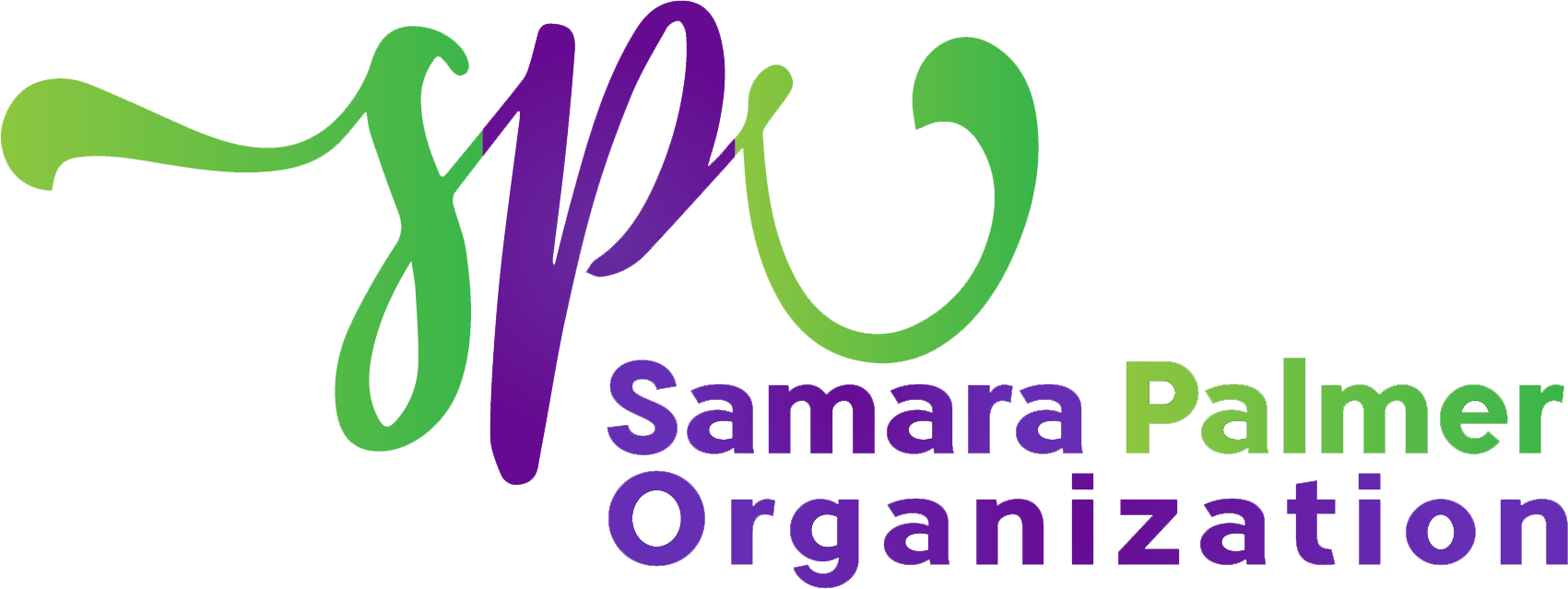Our Services
The support groups and workshops offered by the Samara Palmer Organization are aimed at strengthening participants by helping them to improve in each area of the eight dimensions of wellness that have been identified by the Substance Abuse and Mental Health Services Administration (SAMHSA). Trauma, chronic illness or disability, substance use, and lack of support can compromise wellness.
- Emotional – Supporting individuals and families in learning to cope effectively with life and to build healthy relationships with others is critical to improving emotional health. It involves the ongoing development of people who feel confident, in control of their feelings and behaviors, and are able to handle life. It can be developed and maintained by using each of your senses in everyday activities.
- Spiritual – Encouraging participants to seek inner peace and personal confidence by focusing on the values and beliefs that give meaning and purpose to their lives is an amazing journey. Spiritual wellness is produced by activities such as volunteering, self-reflection, meditation, prayer, or spending time in nature. These activities can build clear values, self-confidence, and a feeling of inner peace.
- Intellectual – Helping participants recognize the importance of engaging in activities that cultivate mental growth, foster improved concentration and memory, and strengthen critical thinking skills help enhance intellectual wellness. This is a two-way street in the activities one chooses – both individual and with others. It improves memory and critical thinking skills, supports successful daily living, and the achievement of short- and long-term goals.
- Physical – Ensuring that the physical body is as healthy as possible will support participants in achieving other efforts to improve overall wellness. Embracing physical activity, improved nutrition, receiving adequate sleep and eliminating unhealthy habits or coping mechanisms will strengthen this area of wellness. Unfortunately, some people use smoking to cope on a daily basis. It can lead to a number of physical health problems, including heart disease and cancer.
- Environmental – Focusing our participants on improving their social and natural surroundings will affect how they feel and function. Learning to eliminate clutter, disorganization, pollution, and unsafe or unstable environments will impact one’s environment. Wellness can be managed in many ways, from creating neighborhood watches and recycling, to gardening, purchasing products with minimal packaging, and conserving energy.
- Financial – Supporting our participants in their goals to achieve financial wellness is aimed at helping them to reduce stress and gain economic security. Establishing processes, such as tracking one’s spending for a month to see where money is going can help set goals. Budgeting, saving, avoiding credit card debt, shopping at thrift stores, using the library, eating in, and making sound financial decisions will support overall wellness.
- Occupational – Promoting the vocational support of our participants and their families is an important dimension of wellness. Finding meaningful and financially rewarding work goes hand-in-hand with building new skills, exhibiting personal strengths and creativity, increasing self-confidence and upward social and employment mobility. Finding the work that touches on your values, skills, and interest, speak well toward occupational wellness. If your work culture does not feel right, seek out support from others close to you.
- Social – Helping participants connect with others in healthy relationships supports feelings of belonging and self-worth. This area of wellness includes setting healthy boundaries, using effective communication skills that are assertive rather than aggressive or passive, giving, receiving support from others, and spending quality time with others.
Setting goals in each area can help an individual feel more fulfilled and optimize one’s health. Start with the dimension that calls to you the most, then work on the others from there. Seeking support from a friend, family member, or professional can be helpful.
Reference: Substance Abuse and Mental Health Services Administration (SAMHSA). (2016, April 28). The Eight Dimensions of Wellness. Retrieved from http://www.samhsa.gov/wellness-initiative/eight-dimensions-wellness
